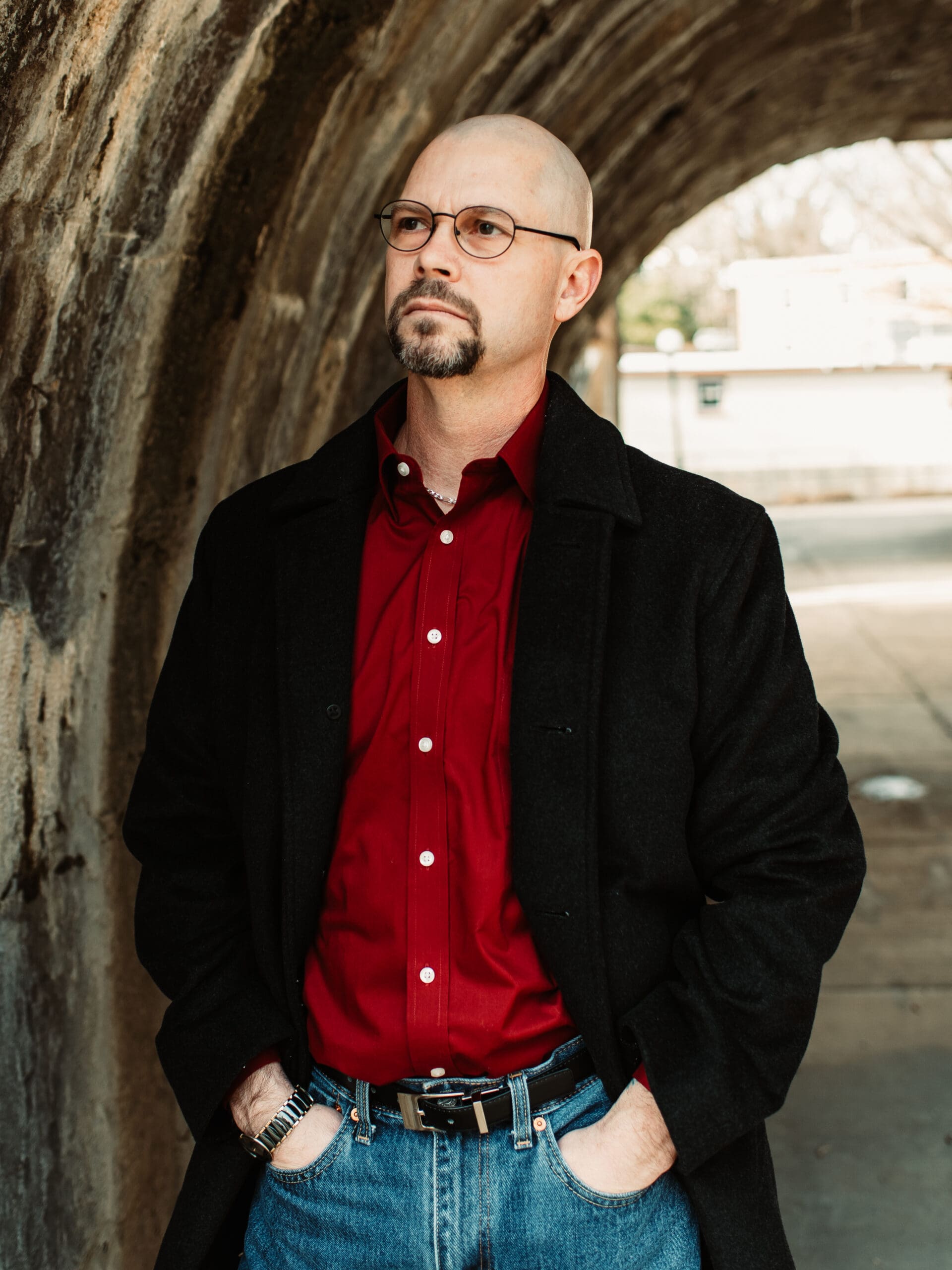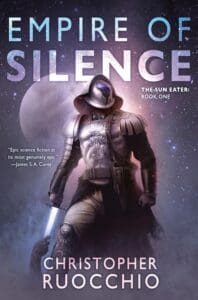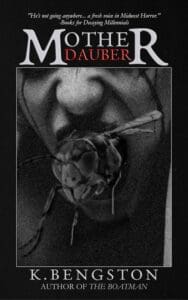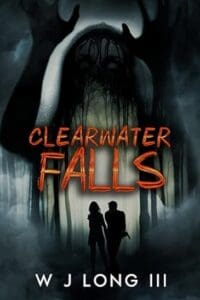The Thin Line Between Gratuitousness and Meaningful Violence in Media
In storytelling, especially in horror and thriller fiction, the depiction of violence has always been a double-edged sword. If it’s done carelessly, it’s an empty spectacle, leaving the audience numb, offering little more than shock value. But, when employed thoughtfully and strategically, violence has the potential to shine a light on uncomfortable truths and provoke crucial questions about justice, morality, and the very fabric of society.
In my debut novel, When Shadows Burn, a character embodies this fragile narrative balance. He isn’t just an abusive individual. He’s a physical manifestation of the community’s collective failure. Misogynistic, bigoted, and quietly enabled by a system that chooses silence over confrontation, his existence is an indictment of societal complicity. Yes, he is exceptionally evil, but he goes unnoticed because his brand of cruelty is familiar, expected even, within a broken world and rotting society. When this character meets his horrifically violent end, the brutality of his death is neither random nor glorified. It serves as a visceral condemnation of the community that allowed such harm to persist unchecked.
Some readers naturally recoil from violence in fiction, labeling it gratuitous or unnecessary. But fiction, especially horror, holds up a mirror to society, often showing us parts of ourselves we’d rather ignore. Scenes of intense brutality, when carefully crafted, force the audience to confront the consequences of our collective silence. When Shadows Burn does precisely that. The death of this character is grotesque precisely because his life, and the community’s acceptance of his behavior, was grotesque. His end acts not as a celebration of violence, but as a powerful critique of systemic inaction and complacency.
The violence depicted is uncomfortable and done intentionally. It pushes readers to confront a critical question: how much violence are we willing to tolerate if the victim is someone we deem morally reprehensible? Where do we draw the line? And, crucially, does crossing that line corrupt even justified revenge?
Consider the character Lisbeth Salander from The Girl with the Dragon Tattoo. Salander’s horrific treatment of her abusive therapist blurs the lines between justice and cruelty. Her revenge is undeniably brutal, causing readers simultaneous satisfaction and unease. It forces the uncomfortable reckoning that perhaps justice, taken into our own hands, can make monsters out of victims. Similarly, the violence in When Shadows Burn evokes an emotional tension that compels readers to grapple with their own instincts. Does the relief at seeing a villain punished negate the moral implications of the punishment itself?
In horror, this kind of moral ambiguity is where the narrative’s power lies. The most profound moments of fictional violence do not merely shock. They are there to make the audience question and challenge their views. They ask us to consider what happens when the monsters aren’t simply myth or metaphor, but actual people whose cruelty has gone unchecked by the society that surrounds them. What happens when such monsters become victims of even greater horrors?
My character’s death isn’t a throwaway moment. It resonates deeply through the narrative. It is a psychological turning point, shifting the story from an atmosphere of creeping dread to one of outright terror, stripping away the veneer of rationalization. It’s at this juncture that survival instincts take over, characters are forced to see clearly, and readers must reckon with their discomfort.
The scene’s brutal honesty functions narratively as a thematic reckoning. It illuminates how systemic rot thrives in silence. How inaction breeds violence. How unchecked cruelty can explode in devastating ways. Far from celebrating violence, this scene explicitly indicts it, forcing an acknowledgment of complicity.
Ultimately, meaningful violence in fiction is not about spectacle or shock value. It’s about facing the darkest truths about our communities and ourselves. It forces the audience to reflect on justice’s complexity, the nature of revenge, and the unsettling truth that there might not be a clean line between heroism and horror.
True horror storytelling exists precisely in these moments of moral ambiguity, discomfort, and reflection. It asks difficult questions about humanity, refusing to offer simple answers. It’s in navigating this unsettling terrain, confronting our own contradictions and limitations, that stories like these earn their worth.
About the Author

Todd Brown: Dr. Todd Brown is a computational sociologist, which mostly means he overanalyzes human behavior. He has spoken at places like the CDC, the NIH, and Harvard, typically on the topic of education, although most of the time someone hands him a microphone and hopes for the best. His work has appeared in The New York Times, WIRED, National Geographic, Forbes, USA Today, and other publications, which he sometimes forgets to mention until it’s too late.
“When Shadows Burn” is his first novel. He lives in a small town in Virginia with his incredible wife and their transgender son, who has main-character energy. Both share enough neurodivergence to turn comedic dysfunction into an art form. They also have a son who lives in Florida for some reason and is built like Chris Hemsworth. Learn more by visiting the author at toddbrownwrites.net.
Follow Todd Brown on social media:
Instagram: @toddbrownwrites
Suspicious mansion plays role in missing persons cases
A psychological thriller perfect for fans of Eric LaRocca and Paul Tremblay
Staunton, Virginia – A mysterious home in a small Virginia town becomes the center of a series of missing persons cases in Dr. Todd Brown’s debut Southern Gothic thriller, “When Shadows Burn” (Koehler Books, October 14th, 2025). Following a true crime podcaster, Tim Michaels, who arrives in a rural town to research an old mansion, he expects secrets, but not the kind that stare back. As the research deepens and a teenage girl disappears, the town’s quiet past begins to unravel, revealing something older, crueler, and more monstrous than Tim thought he was chasing.
Dr. Todd Brown, a former public school teacher, is known for his work on The Inspire Project, a foundation aimed at connecting students with thought leaders, innovators, and community leaders, as well as his work as an accomplished speaker on education. As a love letter to his trans son, Dr. Todd Brown hopes to shine a light on the bigotry and isolation felt by marginalized people, especially in rural communities. Acknowledging that he doesn’t represent the communities he writes about, Brown will be donating a portion of the net proceeds of his book to the Hope House of the Shenandoah, an organization dedicated to helping houseless queer and trans youths in the Shenandoah Valley.
Here’s more about the book: Timothy Michaels came to town chasing a story. A true-crime podcaster investigating the haunted legacy of the Scott House, he never expected to be pulled into something so immediate, or so dangerous. But when Roxy disappears, his presence becomes a lightning rod, and the town’s buried history turns volatile. Alongside Amanda, Bob, and a few unexpected allies, Tim begins unearthing a legacy of complicity and cruelty—one that the town would kill to keep hidden. Because in Raven’s Cross, the shadows don’t just linger. They burn.
Advanced Praise for When Shadows Burn
“When Shadows Burn is a chilling Southern Gothic for the podcast age. Think Twin Peaks meets Shirley Jackson.” – Jennifer Wright, bestselling author, columnist, former political editor-at-large for Harper’s Bazaar, featured in The New York Times and The Washington Post
“When Shadows Burn leaves you stunned. Not just because of the mystery, murder, and the unknown, but also because of how Todd Brown weaves into the story a powerful reflection on discrimination and survival. I appreciate how it shines a light on those living their truth daily, in a world that too often meets authenticity with hatred.” – Tal Anderson, Netflix’s Atypical, HBO’s The Pitt, and neurodiversity advocate
“When Shadows Burn feels like the best kind of thriller. The threats may not be what you expect, the mood is eerie and paranoid, and the buildup is relentless. Fully grounded in a contemporary world that feels like it could be Anytown, USA, this book refocuses the lens on which nightmares could be real.” — Emily Woo Zeller, Golden Voice, Audie “Best Voice of the Year,” Independent Audiobook Awards’ Best Female Narrator
An interview with Todd Brown
- What inspired you to write this story, and why now?
I wrote When Shadows Burn because I kept watching queer people, trans people, neurodivergent people be erased from the stories that claim to represent “real” America. What’s happening in small towns right now isn’t subtle. We, as a country, have weaponized nostalgia to pretend harm never happened. I realized horror wasn’t just a genre, it’s a reality for too many. This story isn’t about the darkness; it’s about what happens when people stop seeing each other, and how silence can protect the wrong people.
- Why was the representation of queerness and neurodiversity in your writing important to you?
Because those identities aren’t themes or devices, they’re real people. I’m the parent of a trans son and neurodivergent myself. I’ve seen firsthand how dangerous invisibility can be. I wanted to write a story where queer and neurodivergent characters weren’t tragic side notes, but as in the real world, human beings that we interact with every day.
- How has living in rural Virginia impacted your writing?
It’s taught me that silence can be more dangerous than hate. Rural places are complicated. They can be beautiful and brutal at the same time, and I write to hold both truths at once. There’s poetry in these backroads, but there are also demons no one wants to acknowledge.
- As a devoted ally and a writer focused on highlighting marginalized communities, what recommendations do you have for others looking to be supportive of these communities?
Listen before you speak. Show up in real life, not just online. Do something other than just talk. Performative allyship is incredibly harmful. We need to remember that allyship isn’t an identity, it’s a set of actions you have to choose again and again, especially when it’s uncomfortable.
- What do you hope readers will take away from this book?
I hope readers walk away knowing that survival isn’t just about staying alive, it’s about refusing to vanish. It lives in the ones who speak up, carry each other, and keep showing up, even when the world tries to silence them. When Shadows Burn is about what it costs to tell the truth, and what it means to be believed. It’s also about love, the fierce, stubborn kind that refuses to let anyone go unseen. In the end, I want readers to feel like maybe, just maybe, they aren’t alone in the dark.





Leave a Reply